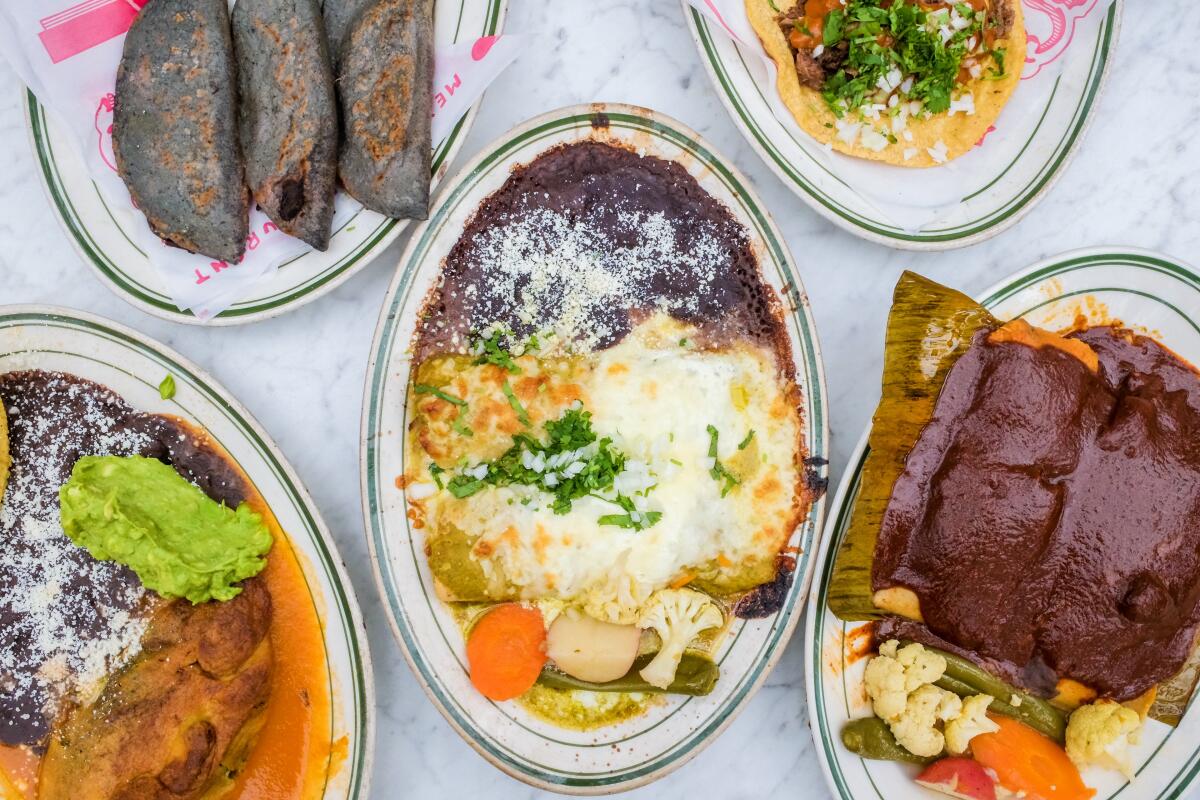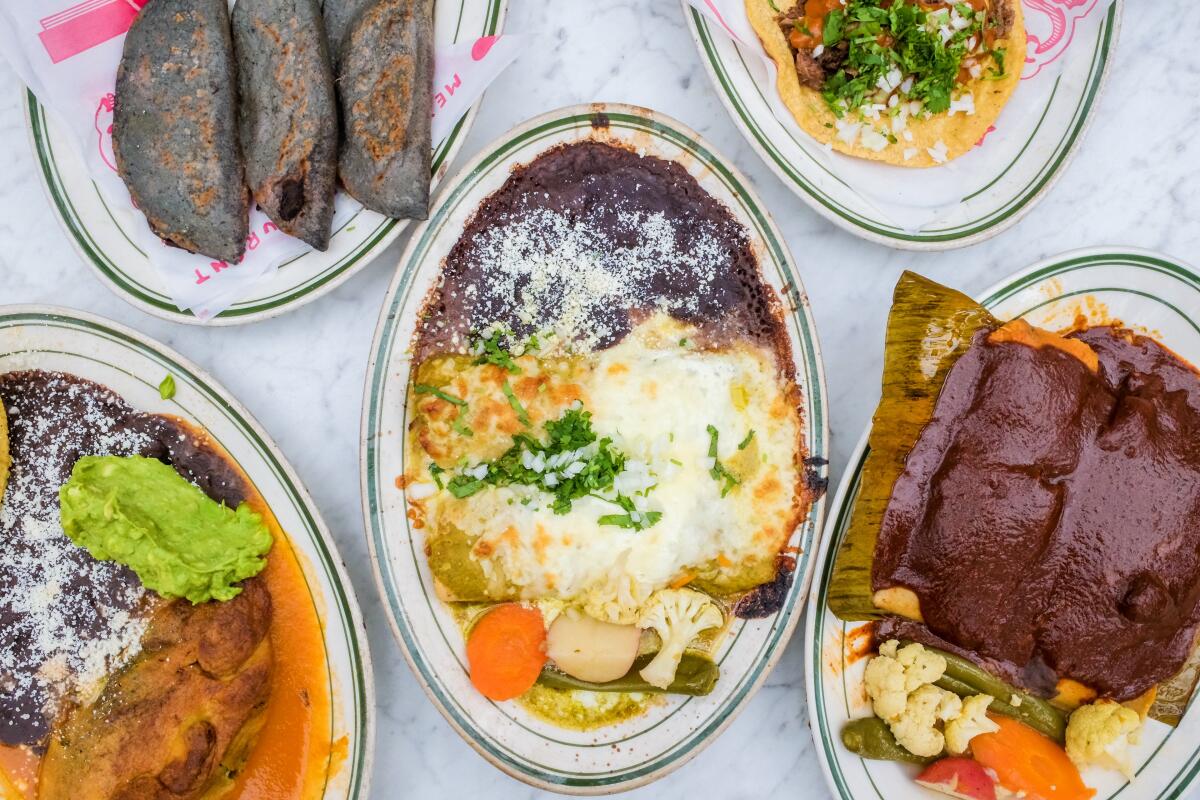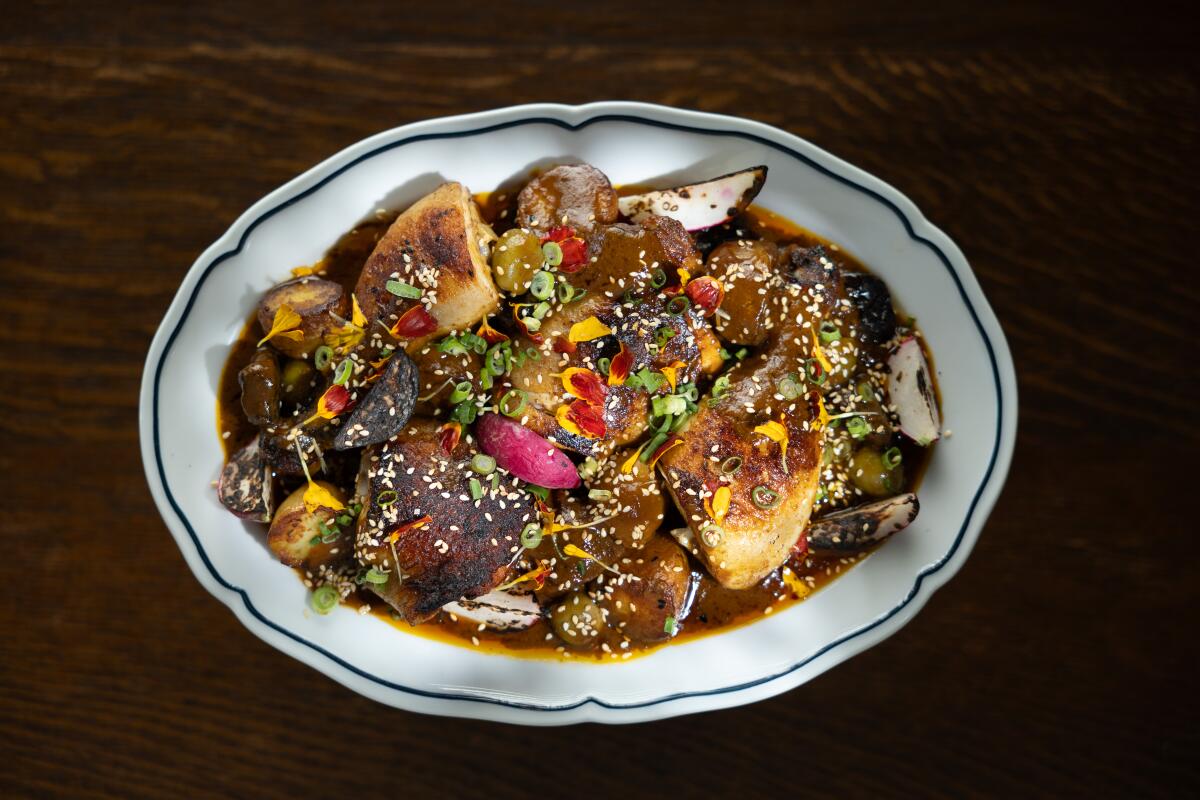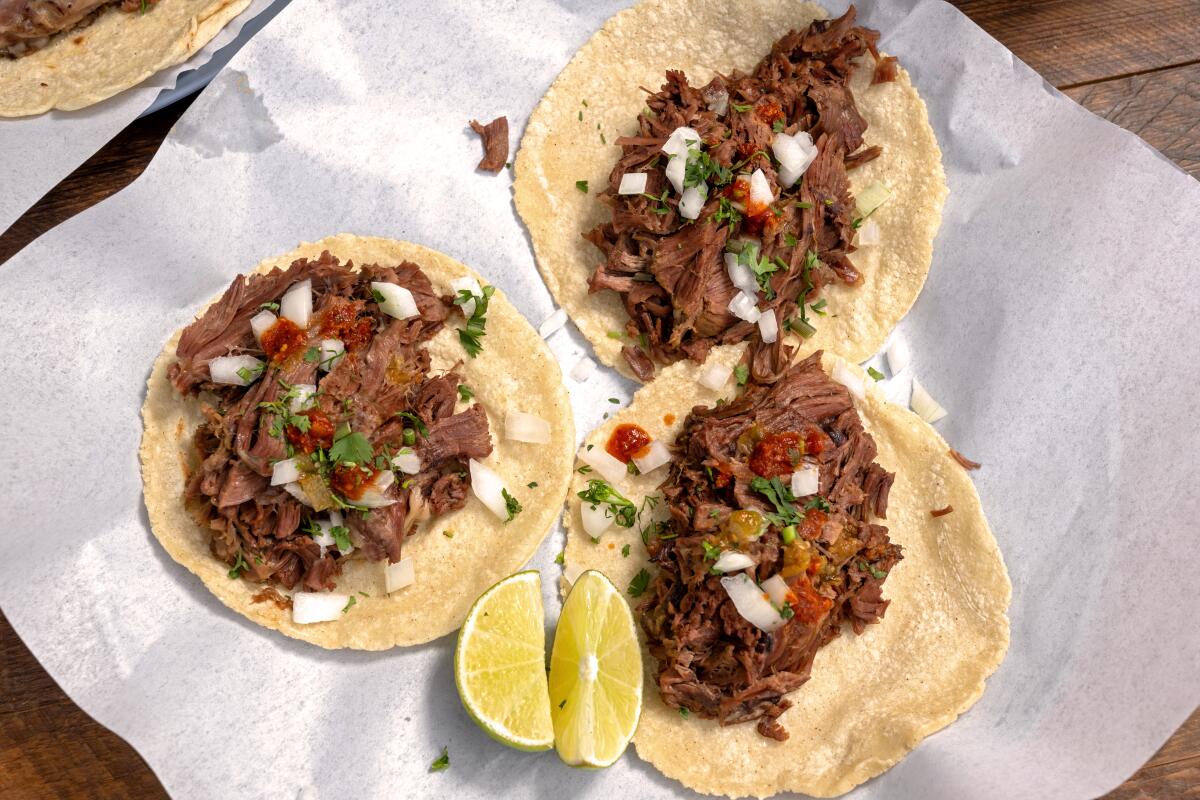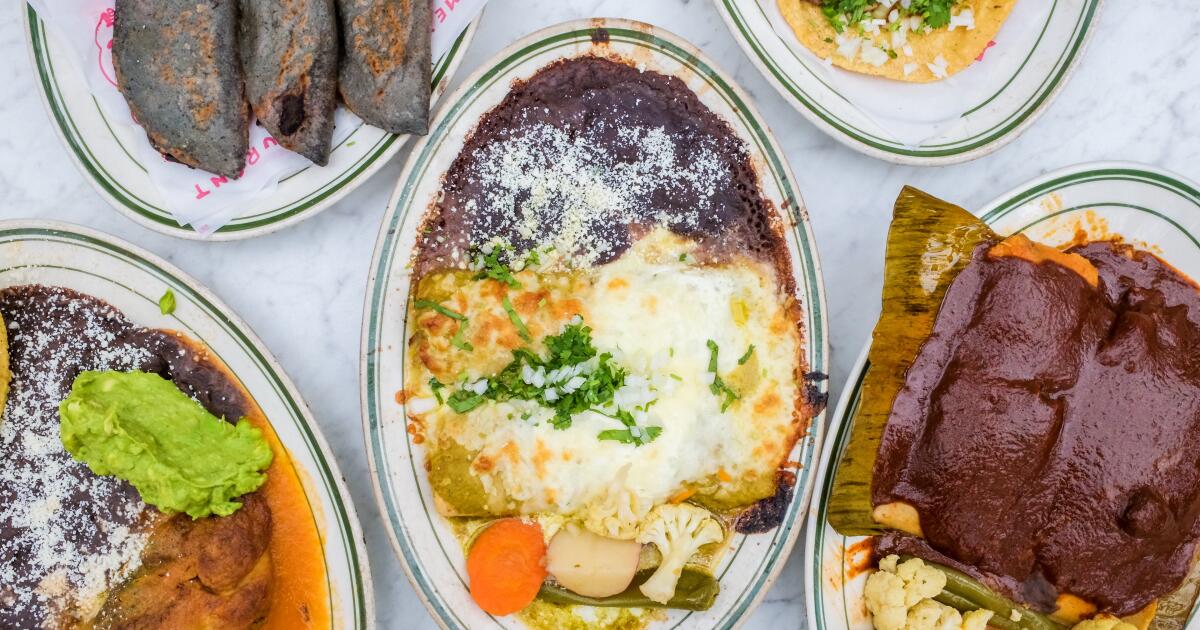Here’s 15 restaurants offering amazing Mexican, Salvadoran food
One of the joys of living in California is that you’re never too far away from a great meal.
And the variety of Mexican and Salvadoran cuisine throughout the Golden State is unsurpassed.
Once again, our friends on the LA Times Food team have released a well-researched and delicious list to confirm California’s status as a national food mecca.
Critic Bill Addison spent more than a year traveling throughout the state, tasting and compiling selections for the 101 Best Restaurants in California guide.
In his latest article, he’s highlighted 15 of the best Mexican and Salvadoran spots throughout the Golden State, highlighting popular haunts and hidden gems.
Look, this doesn’t have to be a tacos-versus-pupusas debate (sorry, Brad Pitt is correct). We can enjoy both and other plates on this list.
Here’s a few recommendations from Addison’s guide.
El Molino Central (Sonoma)
A molino is the specific mill used to grind nixtamalized corn into masa, which has been the focus of Karen Taylor’s businesses for decades.
In 1991, Taylor started Primavera, a Bay Area wholesale operation built around tamales and tortillas, and a name under which she sells life-giving chilaquiles for breakfast on Saturday mornings at San Francisco’s Ferry Plaza farmers market.
Nearly 20 years later, she translated what she’s learned about fresh masa into a tiny restaurant in the Boyes Hot Springs section of Sonoma County.
A portion of the menu flows with the seasons: in the summer, light-handed sopes filled with chicken tinga and chile rellenos filled with epazote-scented creamed corn arrive; winter is for butternut squash and caramelized onion enchiladas; and spring brings lamb barbacoa tacos over thick, fragrant tortillas.
Among perennials, look for the chicken tamale steamed in banana leaves and covered in chef Zoraida Juarez’s mother’s recipe for mole — hers is the color of red clay, hitting the palate sweet before its many toasted spices and chiles slowly reveal their flavors.
Popoca (Oakland)
At the most visionary Salvadoran restaurant in California, Anthony Salguero refashions his culture’s version of the beverage chicha, fermented with corn and pineapple, into a sticky, intricately sour-sweet glaze for grilled and braised chicken.
He shaves cured, smoked egg yolk over herbed guacamole as a play on the boiled eggs that often accompany Salvadoran-style guac. He serves a half Dungeness crab with tools to extract the meat and a side of alguashte, an earthy seasoning of toasted pepitas, to accentuate the crab’s sweetness.
Nicaraguan chancho con yuca, a slow-cooked pork stew, is the inspiration for a walloping pork chop marinated in achiote, grilled above glowing almond logs and poised at an angle, like a rakishly worn hat, over braised yuca and red cabbage.
Salguero ran the eatery Popoca as a pandemic-era pop-up in Oakland before finding a more permanent home (brick walls, pale wood floors, shadowed lighting) in the city’s downtown. While he focuses on reimagining the traditions and possibilities of Salvadoran cooking, he doesn’t abandon El Salvador’s national dish: The pupusas are exceptional, made from several versions of masa using corn he buys from Mexico City-based Tamoa.
Barbacoa Ramirez (Arleta)
Lamb barbacoa — when cooked properly for hours to buttery-ropy tenderness — is such a painstaking art that most practitioners in Southern California sell it only on the weekends.
In the Los Angeles area, conversations around sublime lamb barbacoa should start up in the north San Fernando Valley, at the stand that Gonzalo Ramirez sets up on Saturday and Sunday mornings near the Arleta DMV. You’ll see him and his family wearing red T-shirts that say “Atotonilco El Grande Hidalgo” to honor their hometown in central-eastern Mexico.
Ramirez tends and butchers lambs in the Central Valley. The meat slow-cooks in a pit overnight and, cradled in plush made-to-order tortillas, the tacos come in three forms: smoky, molten-textured barbacoa barely hinting of garlic; a pancita variation stained with chiles that goes fast; and incredible moronga, a nubbly, herbaceous sausage made with lamb’s blood.
Join the line (if it’s long, someone usually hands out samples to encourage patience) and then find a place at the communal outdoor table. Worried that options might run out, Addison said he tends to arrive before 9 a.m., an hour when Ramirez’s rare craftsmanship often inspires a mood where people sit quietly, holding their tacos as something sacred.
The week’s biggest stories
Trump administration, policies and reactions
Crime, courts and policing
Transportation and infrastructure
More big stories
This week’s must-reads
More great reads
For your weekend
Going out
Staying in
L.A. Affairs
Get wrapped up in tantalizing stories about dating, relationships and marriage.
Have a great weekend, from the Essential California team
Jim Rainey, staff writer
Andrew J. Campa, reporter
Kevinisha Walker, multiplatform editor
Karim Doumar, head of newsletters
Diamy Wang, homepage intern
Izzy Nunes, audience intern
How can we make this newsletter more useful? Send comments to [email protected]. Check our top stories, topics and the latest articles on latimes.com.
